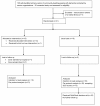Decision aids for respite service choices by carers of people with dementia: development and pilot RCT
- PMID: 22429384
- PMCID: PMC3315425
- DOI: 10.1186/1472-6947-12-21
Decision aids for respite service choices by carers of people with dementia: development and pilot RCT
Abstract
Background: Decision aids are often used to assist individuals confronted with a diagnosis of a serious illness to make decisions about treatment options. However, they are rarely utilised to help those with chronic or age related conditions to make decisions about care services. Decision aids should also be useful for carers of people with decreased decisional capacity. These carers' choices must balance health outcomes for themselves and for salient others with relational and value-based concerns, while relying on information from health professionals. This paper reports on a study that both developed and pilot tested a decision aid aimed at assisting carers to make evaluative judgements of community services, particularly respite care.
Methods: A mixed method sequential study, involving qualitative development and a pilot randomised controlled trial, was conducted in Tasmania, Australia. We undertook 13 semi-structured interviews and three focus groups to inform the development of the decision aid. For the randomised control trial we randomly assigned 31 carers of people with dementia to either receive the service decision aid at the start or end of the study. The primary outcome was measured by comparing the difference in carer burden between the two groups three months after the intervention group received the decision aid. Pilot data was collected from carers using interviewer-administered questionnaires at the commencement of the project, two weeks and 12 weeks later.
Results: The qualitative data strongly suggest that the intervention provides carers with needed decision support. Most carers felt that the decision aid was useful. The trial data demonstrated that, using the mean change between baseline and three month follow-up, the intervention group had less increase in burden, a decrease in decisional conflict and increased knowledge compared to control group participants.
Conclusions: While these results must be interpreted with caution due to the small sample size, all intervention results trend in a direction that is beneficial for carers and their decisional ability. Mixed method data suggest the decision aid provides decisional support that carers do not otherwise receive. Decision aids may prove useful in a community health services context.
Trial registration number: ISRCTN: ISRCTN32163031.
Figures
References
-
- O'Connor A, Stacey D. Should patient decision aids (ptDAs) be introduced in the health care system? Health Evidence Network, World Health Organization: EJ; 2005.
-
- O'Connor A, Bennett C, Stacey D, Barry M, Col N, Eden K, Entwistle V, Fiset V, Holmes-Rovner M, Khangura S, Llewellyn-Thomas H, Rovner D. Decision aids for people facing health treatment or screening decisions. Cochrane Db Syst Rev. 2009;8(3):1–113. - PubMed
-
- Australian Institute of Health and Welfare (AIHW) Dementia in Australia: National data analysis and development. Cat. no. AGE 53. Canberra; 2007.
Publication types
MeSH terms
Associated data
LinkOut - more resources
Full Text Sources
Medical


